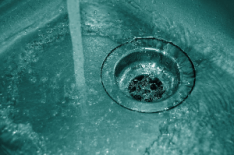Dealing with blocked drains is a nightmare no one wants to experience. Not only is it an inconvenience, but it can also be very costly if not taken care of in time. Whether it’s a minor clog or something more serious, there are several sign that you should watch out for so you can tackle the problem head-on. To get started, click here for some key signs and tips on how to prevent blocked drains from becoming a nightmare.
Signs You Have a Blocked Drain
If your sink has been draining slowly or completely stopped, this is usually one of the first telltale signs that you have a blockage in your drain. Another common sign is unpleasant odours coming out of your drain. Your home may start to smell like sewage and this can be caused by hair, food, soap scum or other objects that accumulate over time and eventually form a blockage. In addition to these issues, you may also notice mold or mildew growth as the water accumulates in certain areas of your pipes.

Detecting the Blockage
In order to detect where the blockage is located, you will need to inspect the entire drainage system. This includes the fixtures such as sinks, toilets, bathtubs, showers, etc. You should also make sure to check the main line to ensure that any debris has not accumulated there. If you suspect that your main line is blocked, it is best to hire a professional plumber to inspect it and take the appropriate steps to unblock it.
Causes of Blocked Drains
There are several potential causes of blocked drains, including: tree roots, foreign objects such as toys, excessive grease buildup, broken or collapsed pipes, and even misaligned pipes. Tree roots can be particularly problematic because they can easily penetrate small cracks in pipes and cause major blockages. Grease buildup can occur when people pour cooking oil or fats down the drain, which can form a thick layer over time and cause significant blockages.
Preventative Measures
The best way to prevent blocked drains is to practice good maintenance habits. Make sure to clean your drains regularly with a quality drain cleaner to remove any build up of surface debris. Pay extra attention to areas such as the kitchen sink, which tend to get clogged more often due to the amount of food and grease that goes down the drain. Additionally, double check that all objects such as forks, spoons and toys don’t end up in the drain.
When to Seek Professional Help
If your drains are still slow or completely clogged after attempting to clear them yourself, it’s best to call a professional plumber who can take a look at the problem and advise you on the best course of action. A experienced plumber will know the best way to handle your specific issue and restore your drainage system to its optimal condition.
Conclusion
Blocked drains can be a real nuisance and can lead to more serious problems if not addressed quickly. Knowing what to lookout for and taking preventive measures can help to avoid drainage issues. However, if the problem persists then it’s best to call a professional plumber who can properly diagnose and resolve the issue.

